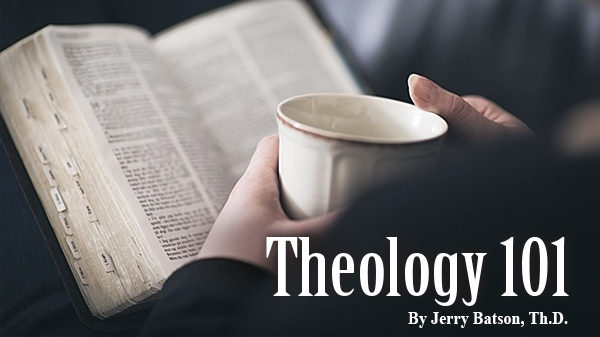What’s New?
By Jerry Batson, Th.D.
Special to The Alabama Baptist
The Old Covenant had numerous special days. Most were seasonal or annual. However, one special day was weekly — the weekly Sabbath.
With roots in the account of creation when God rested on the seventh day, the seventh day each week became the appointed day for rest and worship. This was expressly captured in the commandments of the Old Covenant, when the fourth of the Ten Commandments stipulated, “Remember the Sabbath day, to keep it holy” (Ex. 20:8). After the elaboration about working on the other six days, the ending exhortation about the Sabbath further stipulated, “For in six days the Lord made the heavens and the earth, the sea and all that is in them, and rested the seventh day. Therefore the Lord blessed the Sabbath day and hallowed it” (Ex. 20:11).
While faithfulness in Sabbath observance fluctuated over the centuries, the seventh day came to have a central place in Jewish life. The religious elite sought to safeguard the Sabbath by meticulously listing activities that should be avoided in order not to profane this holy day.
When Jesus came, He came into a setting in which Sabbath observance had become entrenched. Such were the prohibitions attached to Sabbath activities that Jesus was compelled to declare: “The Sabbath was made for man, and not man for the Sabbath” (Mark 2:27).
The entrenched requirements and prohibitions had become such that Jesus said it was as if God created humans in order for the Sabbath to have its adherents, when in fact God set apart the Sabbath for the benefit of those whom He made in His image and likeness. Jesus followed His corrective declaration about the Sabbath being the servant of the people and not the people the servants of the Sabbath with this significant claim: “Therefore the Son of Man is also Lord of the Sabbath” (Mark 2:28).
Although being Lord of the Sabbath, Jesus made it His custom to honor Sabbath observance by attending weekly synagogue services, a practice attested in Luke 4:16, “So He came to Nazareth, where He had been brought up. And as His custom was, He went into the synagogue on the Sabbath day.” In fulfilling completely the Old Covenant law, Jesus made Sabbath observance a cornerstone of His weekly activities.
With all this in mind, we recall that Jesus came to establish a new covenant. Whereas the basic old covenant commands were etched in stone, the new covenant requirements were written on human hearts.
When His followers began to reflect on Christ’s death and resurrection, they found their hearts leading them to honor the resurrection on the first day of the week. Gradually, the hearts of Christians migrated away from the Sabbath requirement of the Old Covenant to the glad celebration of Resurrection Sunday as the weekly occasion for worship, rest and reflection on the event that occupied the central place in the New Covenant — the death, burial and resurrection of the Promised Messiah.
Gathering to worship
Within that first generation of Christian believers, the Holy Spirit seemed to write on their hearts the importance of celebrating the resurrection of Jesus by meeting for worship on the first day of each week. Hence, we read in Acts 20:7 of these followers of Christ gathering on the new day for worship. In a similar way, 1 Corinthians 16:2 speaks of the weekly gathering of believers on the first day of the week. The New Covenant, with its requirements being a matter of the heart, introduced a new day for community worship, one clearly celebrated by the apostles and early church.
________________________________________________________
EDITOR’S NOTE — Jerry Batson is a retired Alabama Baptist pastor who also has served as associate dean of Beeson Divinity School at Samford University and professor of several schools of religion during his career.



Share with others: